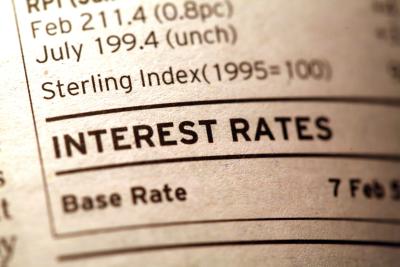7 Basic Things You Need to Know About Bonds
Dec 26, 2023 By Triston Martin
How would you want to improve the risk-reward profile of your investment portfolio? Bonds are a great way to diversify and reduce volatility in a portfolio. However, even the most seasoned investors may find the bond market to be foreign and intimidating. Due to the seeming intricacy of the market and the language, many investors only dabble occasionally with bonds. Bonds are really just a basic form of debt financing. Where do you even begin to penetrate this market segment? The following glossary of bond market words should get you started in the bond investment process.
Bonds Are Debt
Bonds are a kind of debt financing used mostly by governments and certain types of businesses. If you invest in bonds, you take on the role of a lender. Detailed information about the loan, such as the repayment schedule and interest rate, is provided in the bond's terms and conditions. Given the potential for variation, it's crucial to know precisely what you agree to when you buy bonds.
Bonds Mature Over Time
On the day of maturity, the bond issuer is obligated to pay the bondholder the bond's par value (sometimes called the face value). It is possible to issue bonds with any maturity period: Long-term bonds have a maturity date of 10 years or more, whereas medium-term bonds mature between 4 and 10 years, and short-term bonds mature in less than 4 years.
Bonds Pay Interest

In bonds, the coupon represents the yearly interest payment. Interest accrued is a proportion of the bond's face value. A coupon rate of 2% on a $1,000 bond would result in an annual interest payment of $20. In contrast, zero-coupon bonds are offered at a discount to their face value and pay interest only when they are redeemed at maturity for their face value.
Callability
It is possible for the issuer to prepay a portion of the bonds. When a bond includes a call clause, the issuer might choose to redeem it early at their discretion and at a premium to par value. If a firm can borrow at a lower interest rate by calling its bonds, it may do so. A higher coupon rate isn't the only reason why callable bonds are popular amongst investors.
Bonds Can Be Tax-Free
There is a special category of bonds created specifically to generate profits free of taxation. Municipal bonds (or "munis" for short) are issued by cities and governments to finance public works like schools and roads. Bond interest is not subject to federal income taxation. As a bonus, if you happen to be a resident of the issuing municipality, you won't have to pay any state or local taxes on your interest (these bonds are referred to as "double- or triple-exempt"). Despite the financial benefit, munis have their own set of peculiarities that might change from city to city. Make sure you know what you're getting into by reading up on local Muni bonds before you invest.
Bond Funds Are Ideal For New Investors
Those who are new to the market or who wish to diversify their portfolio into debt investments can consider purchasing a bond mutual fund or exchange-traded fund (ETF). This money is handled by experts and is hence quite secure. There are costs associated with using any kind of account service. Bond fund expenses, such as loading and sales charges, are easy to locate. For tax and cost reasons, many funds choose not to load at all. Having your fund no longer exposed to the liquidity risk associated with individual bonds may be worth the additional expense. Bond mutual funds also have the added benefit of automatically being diversified. To spread out the risk of your investment portfolio, even a little sum invested in a bond fund may make a big difference. To do so would be difficult when dealing with individual bonds due to the high expense of purchasing many bonds.
More People Buy Bonds Than Stocks

Bonds are sold by a number of different entities, but stocks are only provided by publicly traded companies. Bonds may be issued by a wide variety of public entities, including businesses, both public and private, the federal government, federally sponsored organizations, cities, states, and many more. There is a vast variety of bond types, with maturities ranging from less than a year to more than 30 years.
Conclusion
Investors of varying ages and financial circumstances often allocate a larger share of their investments to volatile equities at the outset of their careers before switching to safer, more stable bond holdings in the years leading up to retirement. It is advisable to get the advice of an investing expert when selecting whether or not to purchase bonds and, if so, which kinds to purchase.








